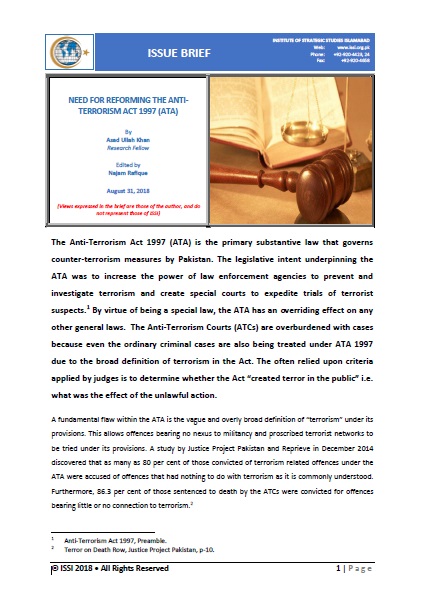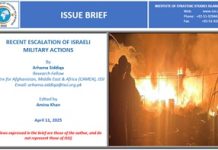The Anti-Terrorism Act 1997 (ATA) is the primary substantive law that governs counter-terrorism measures by Pakistan. The legislative intent underpinning the ATA was to increase the power of law enforcement agencies to prevent and investigate terrorism and create special courts to expedite trials of terrorist suspects.[1] By virtue of being a special law, the ATA has an overriding effect on any other general laws. The Anti-Terrorism Courts (ATCs) are overburdened with cases because even the ordinary criminal cases are also being treated under ATA 1997 due to the broad definition of terrorism in the Act. The often relied upon criteria applied by judges is to determine whether the Act “created terror in the public” i.e. what was the effect of the unlawful action.
A fundamental flaw within the ATA is the vague and overly broad definition of “terrorism” under its provisions. This allows offences bearing no nexus to militancy and proscribed terrorist networks to be tried under its provisions. A study by Justice Project Pakistan and Reprieve in December 2014 discovered that as many as 80 per cent of those convicted of terrorism related offences under the ATA were accused of offences that had nothing to do with terrorism as it is commonly understood. Furthermore, 86.3 per cent of those sentenced to death by the ATCs were convicted for offences bearing little or no connection to terrorism.[2]
















